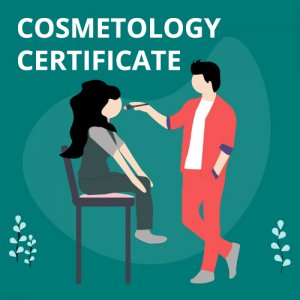What Kind of Accreditation Should My Degree Program Have?
To be sure that future employers will be interested in your degree, it is important to know that your school has the appropriate accreditation.
For any higher education discipline, particularly for the Business, accreditation is crucial when choosing an institution.
The college or university is eligible for financial support if the Department of Education has recognized an association that provided the accreditation.
First of all, accreditation shows that an educational institution adheres to the standards.
Secondly, the program is relevant and continues to expand in its field.
There are institutional and programmatic accreditation processes.
One is required for schools, another is for a specific discipline and degree program.
Regional Accrediting Agencies
Regional and national accreditation agencies can provide institutional accreditation.
In short, regional accreditation agencies enhance reputation and credibility.
When studying the conditions of colleges and universities, it is advisable to obtain a “stamp of approval” from one of these accreditation agencies depending on the region:
- The Higher Learning Commission
- Middle States Commission on Higher Education
- New England Association of Schools and Colleges
- Northwest Commission on Colleges and Universities
- Southern Association of Colleges and Schools Commission on Colleges
- Western Association of Schools and Colleges
If your professional direction requires an associate degree Make sure your school is recognized as one of these regional accreditors.
National Accrediting Agencies
The fastest and working way to get a job in cosmetology is to get a certificate or diploma.
That’ s why program accreditation is very important in the study of cosmetology.
Despite the fact that such programs often do not have regional accreditation, there is a program accreditation group of people working in this field recognized by the Department of Education.
The approval of the lead group is evidence of the quality guarantee of the independent program.
You will also have access to student loans and financial aid.
- The National Accrediting Commission for Career Arts & Sciences (NACCAS) is the most popular accreditation agency for the school of cosmetology and beauty.
Except for NACCAS, there are other relevant accrediting agencies.
- Accrediting Commission of Career Schools and Colleges of Technology (ACCSCT)
- Accrediting Council for Continued Education & Training (ACCET)
- American Association of Cosmetology Schools (AACS)
If you want to receive a diploma certificate or a degree in cosmetology, make sure that your school is recognized by one of these agencies, otherwise, you won’t be able to pass an exam.
To determine accreditation status, you simply need to contact the chosen school.
Chiefly, the database of the Department of Education contains all accredited companies within its competence.
If you know about accreditation, you can consider several options for obtaining a degree.
What Kinds of Cosmetology Degrees Are There?
Certificate/Diploma Programs in Cosmetology
As it turned out, a diploma or certification program is an accessible and fast way to work in the field of cosmetology.
Before you do this, you need to graduate from high school or get a matriculation certificate.
Then you will be able to get your diploma or certificate in just one year.
You will receive comprehensive training in nail, hair and skincare.
Moreover, you will learn about the main health safety issues of sanitation and legislation.
During certification programs, you can train in the student lounge to learn how to cut your hair, do skin treatments and advise on skincare.
The program accredited by the association is recognized by the Ministry of Education and will allow you to receive student assistance and take the exam to obtain a license.
Also, you can take a speed-up program to work in a full-service salon.
What Courses Will You Take?
- Hair Analysis
- Tools, Materials, and Implements
- Safety and Sanitation
- Principles and Techniques of Treatment
- Manicure and Pedicure
- Disorders of the Hair and Scalp
Associate’s Degree in Cosmetology
An associate degree in cosmetology is perfect for you if you are interested in management and organizational issues in cosmetology.
Usually, it’s a 60 credit program for 2 years.
Like certification programs, you will receive theoretical and practical training in nail, hair, and skincare.
Of course, you will learn how to ensure safe and legal working conditions.
You will also learn how to diagnose and treat different cosmetic areas.
The Associate Degree Program offers a more detailed examination of business processes and practices, including client service, organizational leadership, and human resources management.
The knowledge gained will allow you to manage your own activities, beauty salons or spa centers.
What Courses Will You Take?
- Hair Analysis
- Disorders of the Hair and Scalp
- Advanced Nail Techniques
- Chemical Safety
- Safety and Sanitation
- Small Business Operations
- Human Relations
- Principles of Management
Bachelor’s and Master’s of Cosmetology
The field of cosmetology provides for a bachelor’s and a master’s degree.
Usually, a junior specialist degree or a certificate is sufficient to work in the salon.
If you want to develop your practical skills and technical knowledge for business administration and management you need specialized courses in a specific field.
Some colleges and universities offer salon & spa management or beauty and health management courses.
A degree program in business may also substitute it.
Continuing your Junior Business Administration degree is a necessary step if you want to own your beauty salon or spa citation.
Perhaps you want to become a member of the management in a large cosmetics company.
What Kind of Licensing or Certification Do You Need?
To practice in the cosmetics industry, you need a license.
For that, you need to pass a national exam that tests knowledge and practice.
Each state conducts a national licensing exam.
Requirements and conditions may vary between States.
Remember that the National Board of Cosmetology recognizes programs accredited only by special organizations.
Therefore, you need to know which accrediting agencies your government board recognizes and make sure that the accrediting organization recognizes your school.
If you need to change a state during training, read the license requirements in another state.
Mainly, if the board of accredited lenders has recognized the school certificate or the program under which you received your certificate, you can get a license and proceed to work.
You can contact the National Interstate Council of State Cosmetology Councils for details.
Popular Degree Programs
What Can You Do With This Degree?
With a diploma or a certificate of a cosmetologist, you will receive the necessary skills and qualifications to work in the salon with a full range of services.
You will be able to give advice on skincare, apply decorative cosmetics or own your luxury beauty salon.
Cosmetology offers such career opportunities for the best professionals:
- Massage Therapists
- Skincare Specialists
- Barbers, Hairdressers, and Cosmetologists
- Manicurists and Pedicurists
How Much Can You Make With This Degree?
Undoubtedly, cosmetology and beauty care professions are part of a growing industry.
According to the Bureau of Labor Statistics, the growth rate in this area will be 10% in 10 years.
Thus, 70,000 new job places will appear.
Here is a list of the most popular occupations in this area and average annual salaries for them:
- Personal Appearance Workers — Mean Pay $ 31,440
- Barbers, Hairstylists, and Cosmetologists — Mean Pay $ 24,830
- Skincare Specialist — Mean Pay $ 31,290
- Manicurists and Pedicurists — Mean Pay $ 24,330
- Other Personal Care/Service Workers — Mean Pay $ 40,160
What Professional Associations or Societies Should You Join?
The best way to establish new connections in your field is to join a professional association.
Here you can also learn about useful seminars or contests and improve your personal knowledge.
Obviously, your chosen career path will determine which associations you decide to join.
Find out about cosmetology associations that match your professional direction:
- The American Association of Cosmetology Schools
- International Salon-Spa Business Network (ISBN)
- Professional Beauty Association (PBA)
- The American Board of Certified Hair colorists (ABCH)
- Associated Hair Professionals (AHP)
- American Association of Cosmetology Schools (AACS)
- Cosmetologists Chicago (CC)
Summary
Now you have a more particular vision of your cosmetology career.
Choose your own path and start applying your talents in work.
The degree in Cosmetology allows you to choose one or more interesting and promising directions.
It’s a great opportunity to realize your stylish potential and make the world more beautiful.
See More Degrees
What can you do with a degree in...







